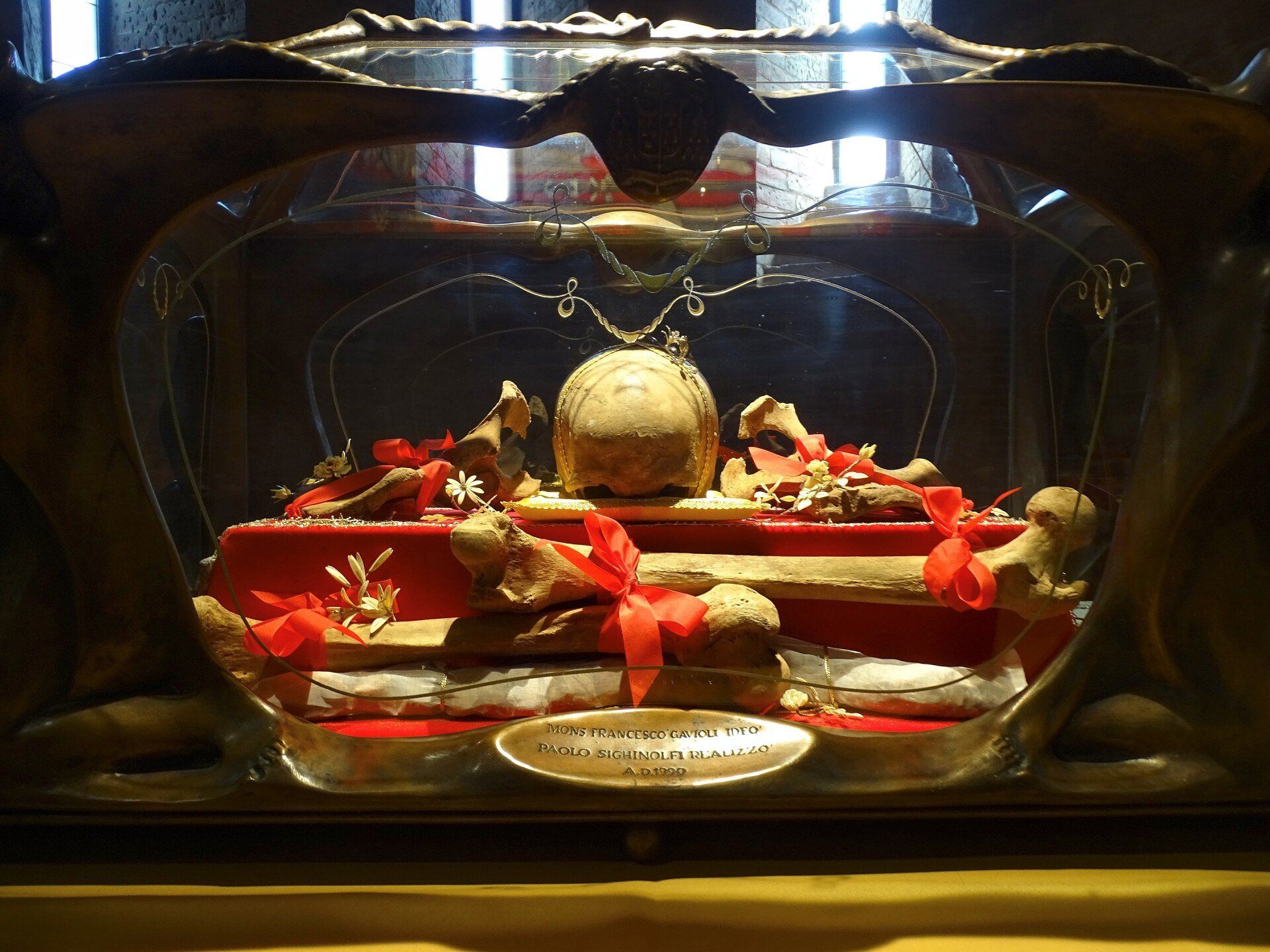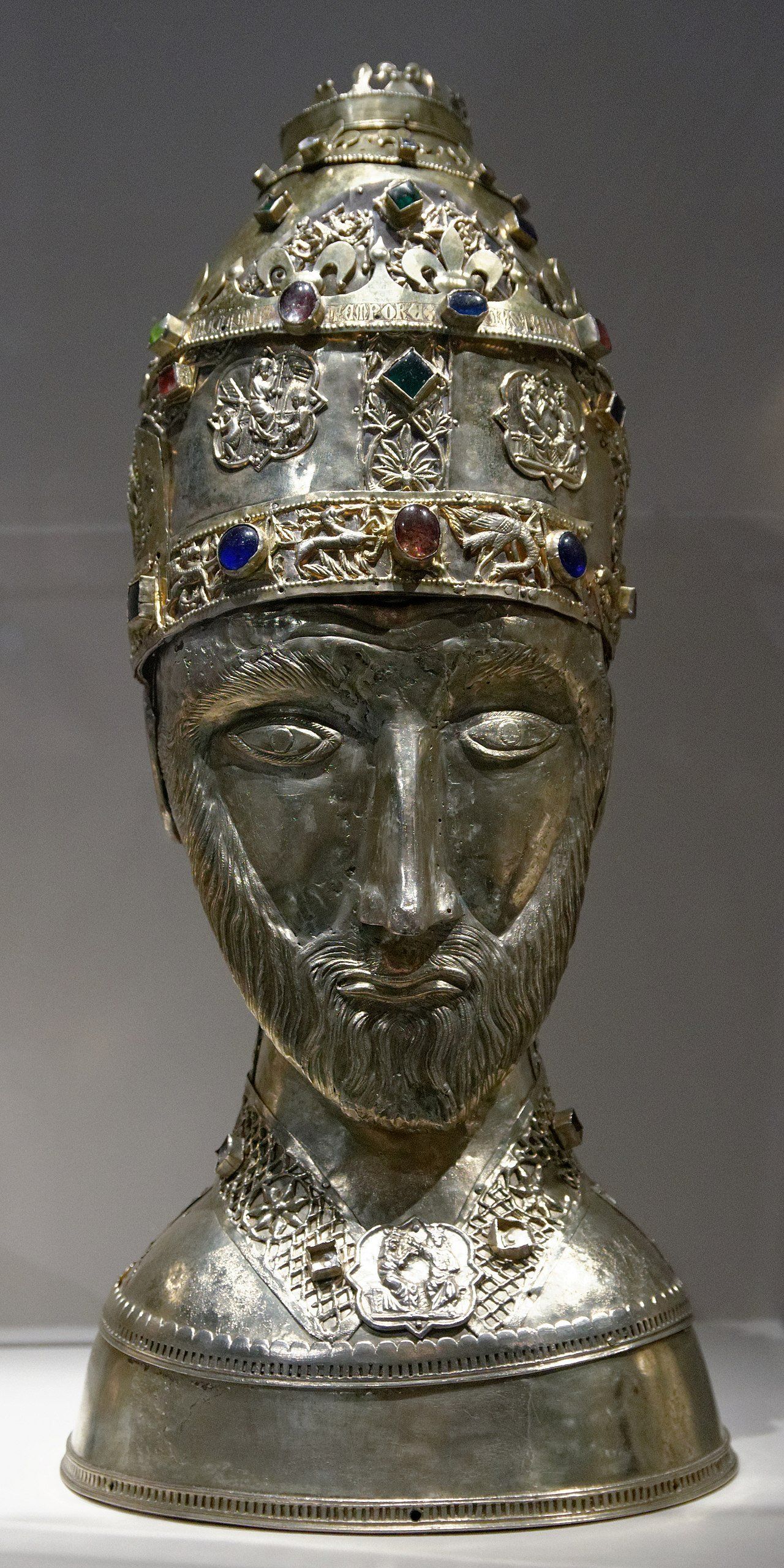Message of Abbot Paul - Saturday 31st December 2022
Abbot Paul • December 30, 2022


I must begin by apologising for the fact that my daily message has failed to appear or has appeared in a faulty way on both the abbey and parish websites, the worst problem being with the parish website. I’m only responsible for writing the message, at times late at night when I’m pretty much exhausted, but not for publishing it. I’m not computer savvy and, when it comes to the internet, even less so. I apologise. If you notice this again, even if for only one day, please let me know and I’ll get on to it. I simply use my computer as a word processor, for email and to order things online. Perhaps one of my New Year resolutions should be to learn how to use this machine that stands before my eyes as I attempt writing these words!
The last day of the year is the feast of Pope St Sylvester I, the 4th century Bishop of Rome, who was martyred on this day in the year 335 at the age of just 50, having served the Church of Rome as bishop for 21 years. During his episcopacy, many important churches were first built in Rome, including the Lateran and Vatican basilicas. Although he did not attend the Council of Nicaea, where the Nicene Creed was formulated, he did send two legates and approved entirely of the decisions taken. In many countries today is known as St Sylvester’s Day rather that New Year’s Eve and there are many customs and traditions attached to it.
Our Gospel today is once again the Prologue to St John’s Gospel, (Jn 1: 1-18), that gives a theological explanation in poetic form of the Incarnation of Jesus Christ, Son of God, the Word made flesh, and Son of Mary, source of light and life, grace and truth, the Saviour of all the Father created at the beginning through him. It strikes me that the best thing we can do today is to meditate on this Gospel passage and so enter into the mystery of God made man and the gift of salvation Jesus came to bring. I leave you with the text and will not comment on it.
“In the beginning was the Word:
and the Word was with God
and the Word was God.
He was with God in the beginning.
Through him all things came to be,
not one thing had its being but through him.
All that came to be had life in him
and that life was the light of men,
a light that shines in the dark,
a light that darkness could not overpower.
A man came, sent by God.
His name was John.
He came as a witness,
as a witness to speak for the light,
so that everyone might believe through him.
He was not the light,
only a witness to speak for the light.
The Word was the true light
that enlightens all men;
and he was coming into the world.
He was in the world
that had its being through him,
and the world did not know him.
He came to his own domain
and his own people did not accept him.
But to all who did accept him
he gave power to become children of God,
to all who believe in the name of him
who was born not out of human stock
or urge of the flesh
or will of man
but of God himself.
The Word was made flesh,
he lived among us,
and we saw his glory,
the glory that is his as the only Son of the Father,
full of grace and truth.
John appears as his witness. He proclaims:
‘This is the one of whom I said:
He who comes after me ranks before me
because he existed before me.’
Indeed, from his fullness we have, all of us, received –
yes, grace in return for grace,
since, though the Law was given through Moses,
grace and truth have come through Jesus Christ.
No one has ever seen God;
it is the only Son, who is nearest to the Father’s heart,
who has made him known.”









